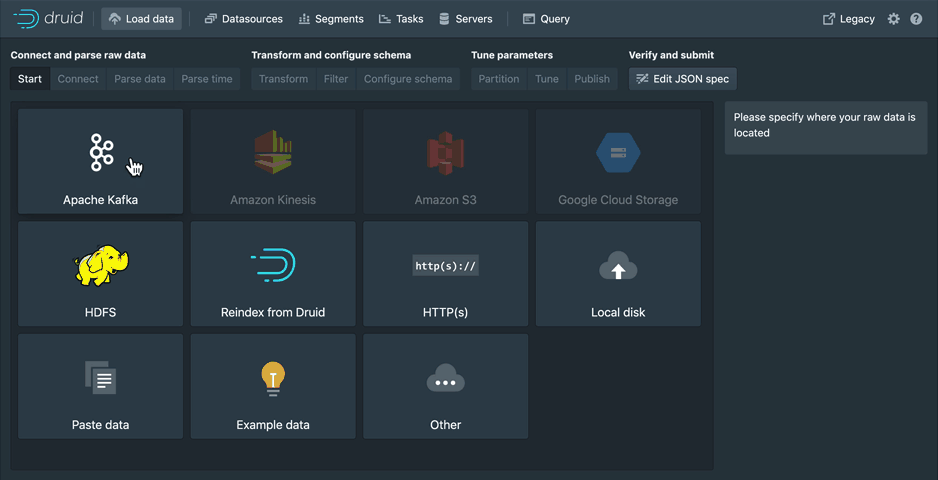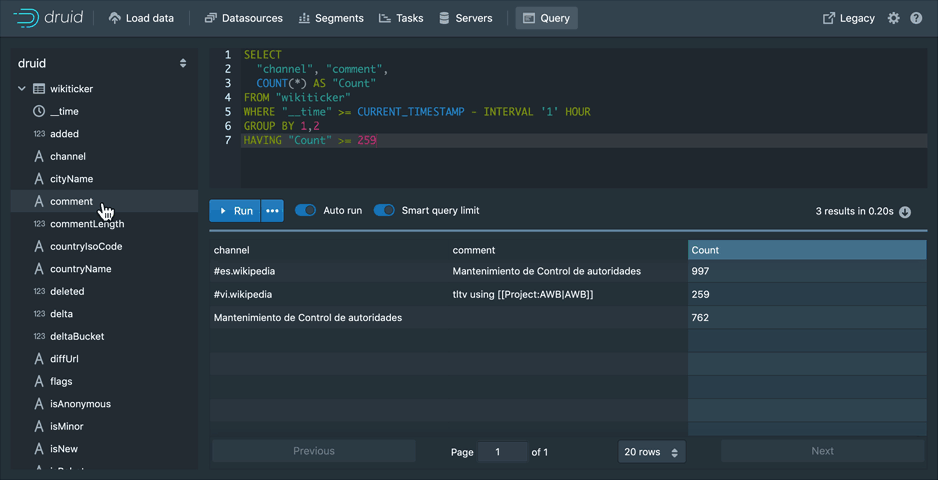Website | Documentation | Developer Mailing List | User Mailing List | Slack | Twitter | Download
Apache Druid (incubating) is a high performance real-time analytics database.
Druid is a next-gen open source alternative to analytical databases such as Vertica, Greenplum, and Exadata, and data warehouses such as Snowflake, BigQuery, and Redshift.
You can get started with Druid with our quickstart.
Druid provides a rich set of APIs (via HTTP and JDBC) for loading, managing, and querying your data. You can also interact with Druid via the built-in console (shown below).
Load streaming and batch data using a point-and-click wizard to guide you through ingestion setup. Monitor one off tasks and ingestion supervisors.
Manage your cluster with ease. Get a view of your datasources, segments, ingestion tasks, and servers from one convenient location. All powered by SQL systems tables allowing you to see the underlying query for each view.
Use the built-in query workbench to prototype DruidSQL and native queries or connect one of the many tools that help you make the most out of Druid.
You can find the documentation for the latest Druid release on the project website.
If you would like to contribute documentation, please do so under
/docs in this repository and submit a pull request.
Community support is available on the druid-user mailing list, which is hosted at Google Groups.
Development discussions occur on dev@druid.apache.org, which you can subscribe to by emailing dev-subscribe@druid.apache.org.
Chat with Druid committers and users in real-time on the #druid channel in the Apache Slack team. Please use this invitation link to join the ASF Slack, and once joined, go into the #druid channel.
Please note that JDK 8 is required to build Druid.
For instructions on building Druid from source, see docs/development/build.md
Please follow the community guidelines for contributing.
Disclaimer: Apache Druid is an effort undergoing incubation at The Apache Software Foundation (ASF), sponsored by the Apache Incubator. Incubation is required of all newly accepted projects until a further review indicates that the infrastructure, communications, and decision making process have stabilized in a manner consistent with other successful ASF projects. While incubation status is not necessarily a reflection of the completeness or stability of the code, it does indicate that the project has yet to be fully endorsed by the ASF.






